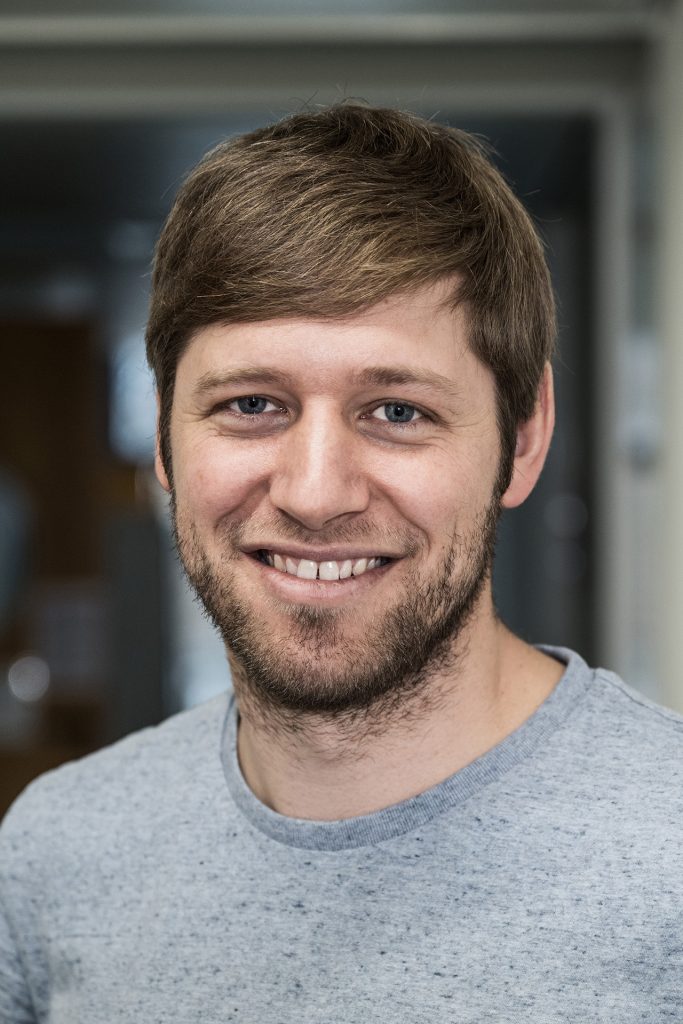
Christiane Herzog Research Promotion Prize for Young Researchers at the Charité
Joint press release of the Christiane Herzog Foundation, Charité – Universitätsmedizin Berlin and the Berlin Institute of Health (BIH)
Berlin, 24 November 2020 – Rare mutations as the cause of cystic fibrosis are the focus of the work of Dr. Simon Gräber, assistant doctor at the Clinic for Paediatrics with a focus on pneumology, immunology and intensive care medicine at Charité – Universitätsmedizin Berlin. The Fellow of the BIH Charité Clinician Scientist Programme sponsored by the Charité Foundation receives this year’s Christiane Herzog Prize from the foundation of the same name. The award is accompanied by a grant of 50,000 euros. The young scientist intends to use it to establish a care and research infrastructure at the Charité. His aim is to find an effective therapy for patients with rare variants of the disease. Substances that have already been approved, but are also being developed, are to be tested individually in the laboratory, thus enabling personalised therapies in the care of cystic fibrosis (CF).
Cystic fibrosis is a rare hereditary disease caused by genetic changes in the so-called CFTR gene, which codes for an ion channel in the cell membrane. However, these changes vary. Depending on which section of the gene is affected, the symptoms caused are more or less pronounced. Recently, an international clinical study co-ordinated by BIH Professor Marcus Mall, Director of the Clinic for Paediatrics with a focus on pneumology, immunology and intensive care at the Charité, demonstrated the effectiveness of a new triple therapy that helps about 90 percent of all cystic fibrosis patients. Dr. Simon Gräber is now advocating for the remaining ten percent.
“We are planning to admit a total of at least 50 cystic fibrosis patients with rare mutations to our project,” says Dr. Gräber, who conducts research at the Christiane Herzog Centre of the Clinic for Paediatrics with a focus on pneumology, immunology and intensive care medicine at the Charité. The patients are to be recruited at the Charité and from surrounding centres and will be comprehensively examined: For example, the doctors and scientists want to measure lung function or depict the lung with modern imaging techniques and measure the activity of the CFTR channel in laboratory medicine. “In addition, we are relying above all on “ex-vivo” tests on tiny organoids, which we cultivate individually from cell samples of the patients,” says Dr. Gräber. “These give us the opportunity to test drugs for their effectiveness individually for each patient”. Substances that are already approved for this purpose are possible, but modulators that are currently being developed are also available to the research group through cooperation partners.
Dr. Gräber started his career as a CF researcher in 2008 with his doctoral thesis, which he always continued in addition to his work as a physician in cystic fibrosis care. Through his work, he shows that “bench to bedside” is possible in the care of patients with cystic fibrosis: From the very beginning, he has oriented his research to the needs in CF care and, conversely, generates new research questions from his daily work in the clinic. Since September 2018, Gräber has been supported by the BIH Charité Clinician Scientist Programme, which is also funded by the Charité Foundation.
Prof. Dr. Duska Dragun, Director of the BIH Charité Clinician Scientist Programme and Director of the BIH Biomedical Innovation Academy, is pleased about the successful participant: “Mr. Gräber covers the entire translation chain with his scientific and clinical activities and he works extremely integrative in his professional everyday life – thus he embodies an exemplary Clinician Scientist for me”.
Christiane Herzog Prize
The Christiane Herzog Prize for the promotion of young scientists, endowed with 50,000 euros, is awarded once a year to committed young researchers and enables them to carry out a project relevant to cystic fibrosis. The Christiane Herzog Prize 2020 was awarded at the Digital German Cystic Fibrosis Conference in November 2020. Further information: www.muko.info/dmt
Cystic fibrosis
In Germany, up to 8,000 children, young people and adults are affected by the incurable hereditary disease cystic fibrosis. Due to a disturbance of the salt and water balance in the body, cystic fibrosis sufferers produce a viscous secretion that irreparably damages organs such as the lungs and pancreas. Every year in Germany, around 150 to 200 children are born with the rare disease.
Christiane Herzog Foundation
“Help with action.” This was the motto of Christiane Herzog’s activities for people with cystic fibrosis in 1985. In 1997 she combined her commitment in the Christiane Herzog Foundation with the aim of making life easier for those affected and their families with this tragic disease and giving them hope and new strength in the fight against cystic fibrosis. The foundation draws the population’s attention to the complex clinical picture and promotes understanding and solidarity with those affected by cystic fibrosis. In doing so, it works closely with the Mukoviszidose e.V.
Further information: www.christianeherzogstiftung.de
Mucoviscidosis e.V.
Mukoviszidose e.V. networks patients, their relatives, doctors, therapists and researchers. It bundles different experiences, competences and perspectives with the aim of enabling every affected person to lead a self-determined life with cystic fibrosis. In order to achieve the common tasks and goals, the non-profit association is dependent on the support of committed donors and sponsors. The Mukoviszidose Institut gGmbH is a wholly owned subsidiary of the Mukoviszidose e.V.
Further information: www.muko.info
